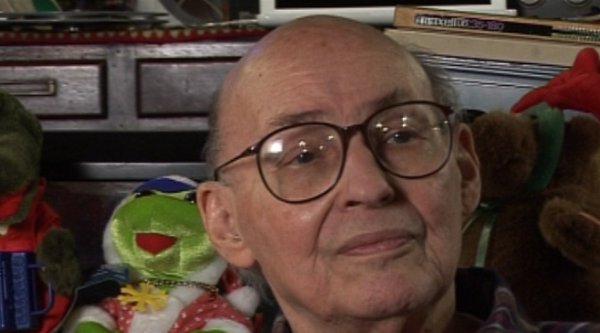NEXT STORY

Why I got on so well with Claude Shannon
RELATED STORIES

NEXT STORY

Why I got on so well with Claude Shannon
RELATED STORIES


|
Views | Duration | |
|---|---|---|---|
| 121. The problem with perceptrons | 1454 | 02:08 | |
| 122. Embarrassing mistakes in perceptron research | 1573 | 02:47 | |
| 123. Why we should publish failures in AI research | 1225 | 01:09 | |
| 124. Claude Shannon's world changing publication | 1 | 1502 | 01:37 |
| 125. Why I got on so well with Claude Shannon | 1699 | 02:09 | |
| 126. Making a ball bearing weapon | 1213 | 03:27 | |
| 127. Making the most useless machine | 8517 | 01:11 | |
| 128. A short history of chess playing machines | 1502 | 03:23 | |
| 129. Did the chess playing machines have an impact? | 1234 | 01:34 | |
| 130. The influence of Nicholas Rashevsky's mathematical biophysics | 1192 | 01:41 |


Shannon’s first publication was about how you could use relays to compute all sorts of different functions or make machines that would do a lot of interesting things. And this was the first paper that systematically made a mathematical or a logical representation of how relays could be assembled into... of what collections of relays could do if they were connected in various ways. And to this day, people use that particular way to represent electrical circuits and theories and... I remember once looking up the paper in… in the journal and the paper next to it was reporting the invention of the fluorescent light bulb. So, here you have... in the middle of this rather thick Institute of Radio Engineers magazine… electrical engineering magazine, there’s the paper by Claude Shannon which – in a sense – led to the modern theory of computers and the next article was how to make this light bulb which eventually replaced most of the light bulbs in the world. I wonder if anybody... I’ve always been meaning to go back and look this up and see if there were three or four other world changing articles in that very same issue.
Marvin Minsky (1927-2016) was one of the pioneers of the field of Artificial Intelligence, founding the MIT AI lab in 1970. He also made many contributions to the fields of mathematics, cognitive psychology, robotics, optics and computational linguistics. Since the 1950s, he had been attempting to define and explain human cognition, the ideas of which can be found in his two books, The Emotion Machine and The Society of Mind. His many inventions include the first confocal scanning microscope, the first neural network simulator (SNARC) and the first LOGO 'turtle'.
Title: Claude Shannon's world changing publication
Listeners: Christopher Sykes
Christopher Sykes is a London-based television producer and director who has made a number of documentary films for BBC TV, Channel 4 and PBS.
Tags: The Radio and Electronic Engineer, The Journal of the British Institution of Radio Engineers, Claude Shannon
Duration: 1 minute, 38 seconds
Date story recorded: 29-31 Jan 2011
Date story went live: 13 May 2011